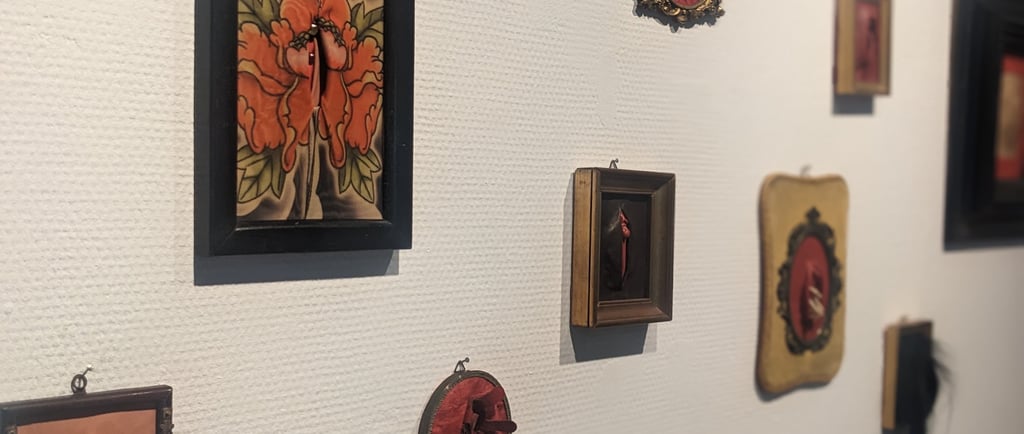Why my study includes all women, not just patients
Hannelore Van Bavel
3 min read


Why do some women seek cosmetic procedures for their genitalia while others don’t?
Female genital cosmetic procedures (FGCP) are surgeries aimed at altering the appearance or function of female genitalia, often for aesthetic or non-medical reasons. Scholars from diverse fields—plastic surgery, gynaecology, psychology, sexology, and sociology—approach FGCP from different perspectives, each bringing unique methods and priorities to the table.
For instance, many social scientists value the depth of insights gained through interviews, which allow for exploring the nuanced experiences of individuals. In contrast, researchers in medicine and health sciences often favour clinical experiments, which they see as offering more measurable and objective findings.
My Anthropological Lens
My own academic background spans sociology, gender and diversity studies, and anthropology, but I primarily identify as an anthropologist. Why? Because anthropology’s holistic approach feels most intuitive to me. Anthropologists believe that social phenomena cannot be understood in isolation; instead, they must be analysed within the context of broader socio-cultural, economic, and political trends.
A classic example of this holistic perspective is Clifford Geertz’s famous study of the Balinese cockfight. At first glance, a cockfight may seem like a trivial or random activity to study in order to understand a society. Yet Geertz argued that the cockfight served as a cultural text, offering profound insights into Balinese life. Through meticulous analysis—examining what happens during the cockfight, why it happens, how people prepare for it, and what’s at stake—he demonstrated how it symbolised broader aspects of society, including status, masculinity, and social dynamics.
Zooming Out: FGCP and Broader Norms
Much of the existing research on FGCP conducted by public health scholars, gynaecologists, and plastic surgeons focuses on the phenomenon in isolation. These studies often aim to understand why women seek FGCP and assess their satisfaction with the outcomes. While valuable, this approach overlooks the wider socio-cultural norms that may shape women’s motivations in the first place.
Feminist scholars in psychology and the social sciences have broadened the lens, exploring factors like beauty standards, societal taboos around discussing genitalia, and the medicalisation of female bodies. These norms contribute to a societal framework that pressures women to scrutinise and alter their bodies to fit an often unattainable ideal.
As an anthropologist, my approach aligns more closely with this broader perspective. In my study of FGCP, I decided early on that I would not only interview women who undergo these procedures but also engage with women from the wider society.
Understanding Norms Beyond Individual Choices
My reasoning was straightforward: if there are indeed social norms that influence women to seek FGCP, these norms affect all women, not only those who proceed to seek FGCP. What are these norms? How do they impact women? Why do they influence some but not all women to seek FGCP?
To address these questions, I designed a study that included interviewing women who have undergone FGCP and their medical practitioners. I also conducted focus group discussions with women from the general population—those who may not have considered undergoing FGCP. This allowed me to capture a more comprehensive picture of the societal influences at play, how they impact different women differently, and what makes some but not all women proceed to seek FGCP.
In these focus groups, I invited women to discuss their perceptions of “women in general.” Rather than asking participants to share personal experiences directly (though they were welcome to if they wished), I posed broader questions: How do you think women, in general, feel about their genital self-image? What factors do you think influence this self-image? How do you think these perceptions affect women’s lives?
A Call to Reflect
Through these conversations, I aim to unravel not just individual motivations but the cultural forces that shape them. Understanding the socio-cultural norms influencing FGCP is not just about the women who undergo these procedures. It’s about examining the pressures we all face in a world that often dictates how we should see and shape our bodies. What do these pressures say about us as a society? And how can we challenge them to create a more inclusive and accepting environment for all women?
Photo taken at Expo Clito, ULB, Brussels
